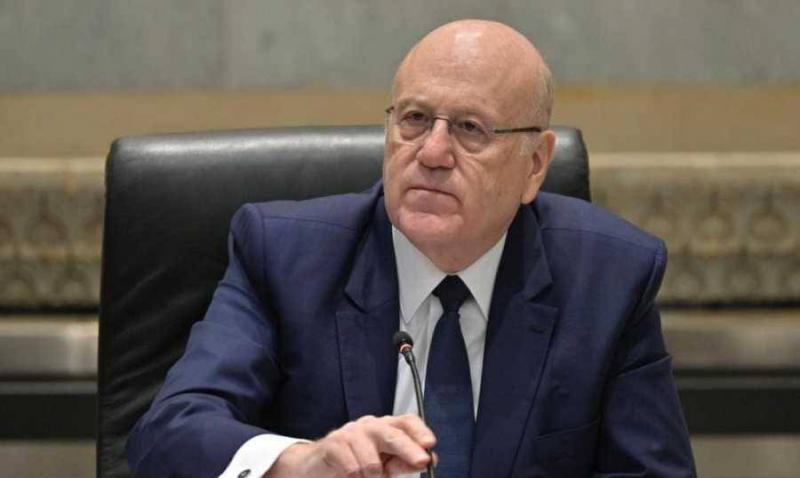Lebanese Prime Minister Najib Mikati reiterated Lebanon's commitment to United Nations resolutions, including Resolution 1701, which calls for a ceasefire and the deployment of the army in southern Lebanon. He also reaffirmed the importance of respecting and implementing UN resolutions to maintain long-term stability in the region.
In a Zoom dialogue with the "American Task Force for Lebanon," led by Edward Gabriel, he stated that "UN Resolution 1701 called for a cessation of hostilities between Hezbollah and Israel and for the deployment of the Lebanese armed forces in southern Lebanon. However, Israel has not respected the resolution, and we have recorded 35,000 Israeli violations of its provisions, including violations of Lebanon's air, land, and maritime sovereignty."
He mentioned that "the Lebanese government is working with the United Nations Interim Force in Lebanon (UNIFIL) to maintain stability in the region and prevent any further escalation of tensions. It is essential that all parties involved respect the rules of engagement and international law to prevent further conflict."
Mikati emphasized that "dialogue and diplomacy are the keys to resolving any disputes or tensions in the region, and the Lebanese government is committed to working towards a diplomatic solution. However, an immediate ceasefire in Gaza is imperative for diplomacy to prevail over violence and war."
In response to a question, he noted: "The presidential vacuum in Lebanon has indeed posed significant challenges during these difficult times. The absence of a president has led to a lack of constitutional arbitration. The 'Five Nations' group is working to resolve the presidential vacuum, including engaging with various parties and political groups to reach a consensus on the presidency. However, political divisions and external factors have hindered these efforts, making it difficult to reach a solution."
He called for "all MPs to assume their responsibilities properly in the interest of Lebanon and work diligently towards electing a president." He continued: "The Gaza war and its repercussions may lead to further destabilization in Lebanon, straining its political and economic situation, and it may also affect Lebanon's ability to manage its internal affairs and increase security challenges. Therefore, it is crucial that all concerned parties work toward a diplomatic resolution to the conflict and address the root causes of the war in Gaza to prevent further indirect impacts in the region."
Regarding discussions he had with U.S. presidential envoy Amos Hochstein in Beirut some time ago, he said: "Hochstein was clear in stating that a diplomatic solution is needed to allow the people of the south to return to their towns and villages, as well as the residents of northern Israel. We hope that we can continue to work on this effort to reach a solution that allows everyone to live in safety and return to their homeland."
He added: "For my part, I assured Amos that dialogue and diplomacy are the keys to resolving any disputes or tensions in the region, and the Lebanese government is committed to working towards a diplomatic solution. However, an immediate ceasefire in Gaza is essential for diplomacy to triumph over violence and war."
He stated: "I highly value President Biden's administration's commitment to preventing the extension of the conflict between Israel and Hamas to Lebanon, and I am grateful for the United States' ongoing efforts to address the crisis." He reiterated his proposal for a long-term ceasefire in Gaza to secure humanitarian aid for the besieged population, which would facilitate mediation for hostage and prisoner exchanges.
He also proposed to reconvene tripartite meetings under UN auspices to resolve disputed points along the blue line between Lebanon and Israel by implementing all relevant treaties and UN resolutions, starting from the 1949 armistice agreement up to the implementation of Security Council Resolution 1701. The proposal also calls for launching an international initiative for a just and lasting solution to the 75-year-long Palestinian-Israeli conflict, based on the two-state solution to ensure fair and just rights for the Palestinians and sustainable security for all.




